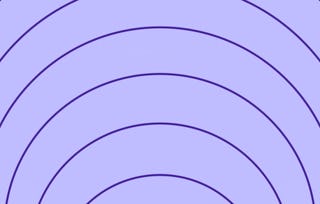Welcome to the second course in the Building Cloud Computing Solutions at Scale Specialization! In this course, you will learn to design Cloud-native systems with the fundamental building blocks of Cloud computing. These building blocks include virtual machines and containers. You will also learn how to build effective Microservices using technologies like Flask and Kubernetes. Finally, you will analyze successful patterns in Operations including: Effective alerts, load testing and Kaizen.

Cloud Virtualization, Containers and APIs

Cloud Virtualization, Containers and APIs
This course is part of Building Cloud Computing Solutions at Scale Specialization

Instructor: Noah Gift
Access provided by Coursera Learning Team
17,409 already enrolled
134 reviews
Recommended experience
Skills you'll gain
- System Monitoring
- Continuous Delivery
- Cloud Deployment
- Performance Testing
- Flask (Web Framework)
- Cloud Platforms
- Cloud Computing
- Cloud Applications
- Kubernetes
- Virtual Machines
- DevOps
- Microservices
- Amazon Web Services
- Serverless Computing
- Containerization
- Cloud-Native Computing
- Skills section collapsed. Showing 11 of 16 skills.
Details to know

Add to your LinkedIn profile
12 assignments
See how employees at top companies are mastering in-demand skills

Build your subject-matter expertise
- Learn new concepts from industry experts
- Gain a foundational understanding of a subject or tool
- Develop job-relevant skills with hands-on projects
- Earn a shareable career certificate

There are 4 modules in this course
This week, you will learn how to access the free tiers of three Cloud environments. If you are joining after completing the first course in this Specialization, this will already be familiar to you. You will then have an opportunity to review the details of the final project in this course: Creating a containerized Flask application that is continuously deployed to a Cloud platform. Each week, you will learn and build upon key Cloud development skills to prepare you for this final course project.
What's included
5 videos6 readings1 discussion prompt
This week, you will learn to evaluate the correct workflows for virtual machines and containers and how to choose the appropriate solution for the task at end. You will also learn about the powerful container management service: Kubernetes. You will apply this knowledge to create a containerized web service and deploy it to a managed container service.
What's included
26 videos16 readings4 assignments4 discussion prompts3 ungraded labs
This week, you will learn to build effective Microservices that comply with DevOps best practices. You will also learn to operationalize Microservices using Continuous Delivery. You will apply this knowledge to create an effective Microservice using AWS Lambda.
What's included
22 videos16 readings4 assignments3 discussion prompts3 ungraded labs
This week, you will learn to effectively perform Operations. This involves mastering Monitoring and Alerts. A key question about Monitoring and Alerts is what to do when they occur. This question is handled in the following lesson. You will learn how load testing can prevent issues before they arise. Finally, the topic of Kaizen, or continuous improvement, is tackled. All of the topics this week are components of DevOps best practices.
What's included
13 videos14 readings4 assignments3 discussion prompts4 ungraded labs
Earn a career certificate
Add this credential to your LinkedIn profile, resume, or CV. Share it on social media and in your performance review.
Instructor

Offered by
Why people choose Coursera for their career

Felipe M.

Jennifer J.

Larry W.

Chaitanya A.
Learner reviews
- 5 stars
63.43%
- 4 stars
23.13%
- 3 stars
8.20%
- 2 stars
1.49%
- 1 star
3.73%
Showing 3 of 134
Reviewed on Sep 26, 2022
This cource is best suited if you are part of transformation jounery
Reviewed on Nov 9, 2022
Fantastic! Thank you.This course was an eye-opener for me.
Reviewed on Dec 12, 2025
Very well strctured course to learn public cloud services and how to leverage them for your applications.





